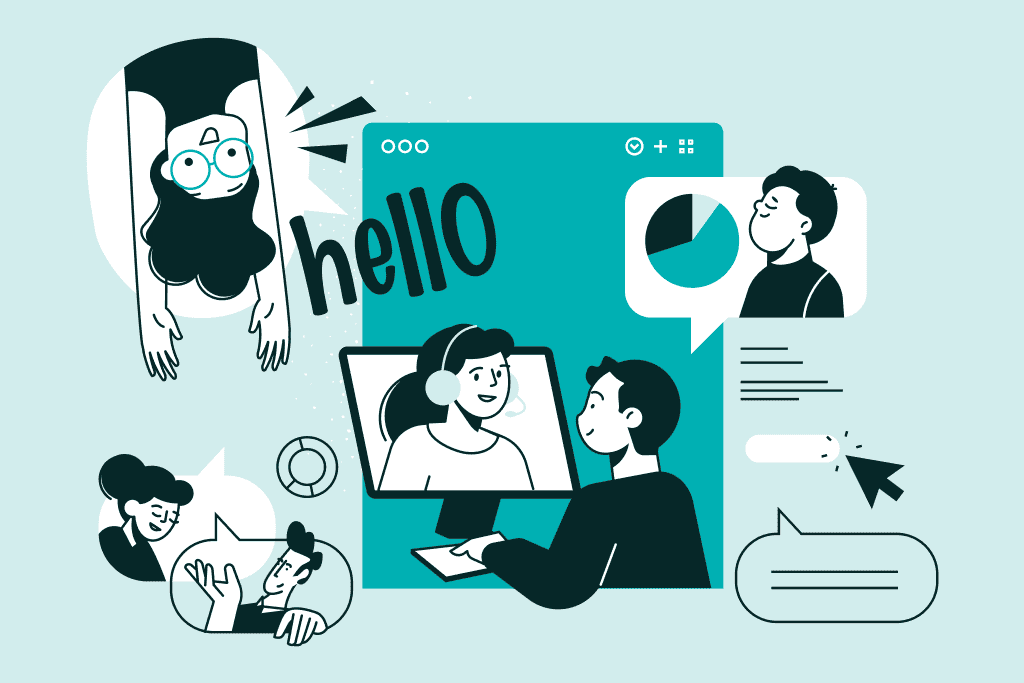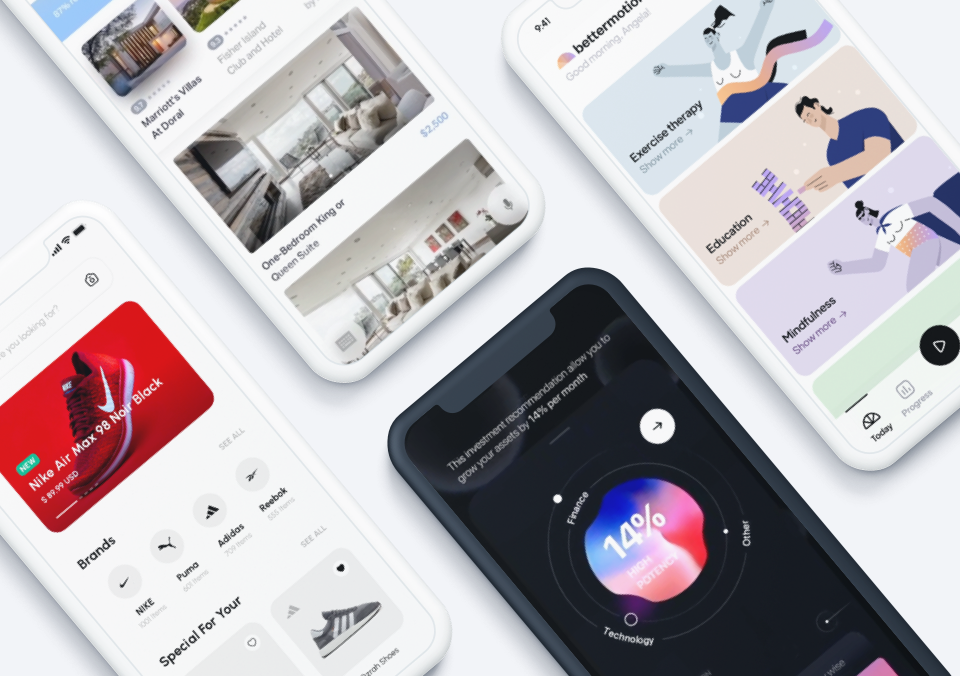Passion is a beautiful thing. An idea pops into your head, and you lose all sense of the world, as you immerse yourself in it. It might be your latest startup idea or a new design project at work. But even when you are knee deep in a project that brings you joy, burnout could be lurking. Burnout may manifest as physical or mental exhaustion, and the tips offered here aim to combat it.
Let’s face it; in today’s professional world more than ever is expected of employees. We’re on Slack 24/7, have email notifications set up on our smartphones, and to-do apps ping us with reminders on the weekend. You probably chose your profession because you enjoy it, are good at it, and there’s a creative challenge involved. But one thing that the most successful leaders in your field may not have mentioned is that you have to take it upon yourself to avoid burnout. There will always be another feature you could be working on or meeting you could be in, but it’s on you to figure out a balance that is comfortable for you individually.
If you want to reach peak productivity, you must learn how to take a step back and relax. That may sound counterintuitive, but it’s true. Here at Proto.io, we work hard, but also make room to breathe as well. This article presents the top tips we use to avoid burnout ourselves.
1. Go Outside
Sometimes I reach a point in my workday where my thoughts get jumbled up and I can’t focus. While I could go get a caffeinated drink and try to keep going, instead I go for a walk. Getting a bit of sun, smelling the flowers near my office, listening to music, getting my blood pumping—all of these things help me return to what I was working on with a clear mind. If I found it hard to come up with fresh ideas before going on a walk, those creative blockers are gone when I return to your desk. I believe that sometimes you need to change your scenery to change your mindset.
2. Limit Notifications
Unless you’re a developer who is on-call at times, there’s a good chance that you can silence some of your notifications while you’re away from the office. Notifications make us anxious. Each notification seems urgent, even if it’s not. Larry Rosen, a psychology professor emeritus at California State University, Dominguez Hill, explains, “We’ve trained ourselves, almost like Pavlov’s dogs, to figuratively salivate over what that vibration might mean… If you don’t address the vibrating phone or the beeping text, the signals in your brain that cause anxiety are going to continue to dominate, and you’re going to continue feeling uncomfortable until you take care of them.”
While there are many things you may not have control over in your professional life, turning off the unnecessary notifications is one thing you can do that will significantly lower your stress levels. I’m not advocating for being out of the loop with what’s going on at work, but setting boundaries so that you can rest and focus on personal things will help avoid burnout.
3. Put Lunch on Your Calendar
With so many projects vying for your attention, it’s easy to schedule meetings during lunch. Then the end of the day nears and you’re hungry and having a hard time focusing. If you block off 30 or more minutes each day to get something to eat, or at least heat something up and sit away from your desk for awhile, you will be doing yourself a favor. When you’ve eaten properly, you can work more effectively, so make it a priority. There will sometimes be days when you need to alter that schedule to make room for an investor meeting or fix something that crashed your site, but having a healthy schedule that you typically stick to will help you keep stress at bay.
4. Walking Meetings
One of my old supervisors once suggested we have our weekly check outside, and it was a great idea. We got a brief change of scenery and talked out ideas for new campaigns while walking through the neighborhood. Instead of sitting in a stuffy office, we had visual stimuli to inspire us. (Getting outside and taking in visually stunning views works wonders for design teams.) This won’t work for collaborative meetings in which you need to take notes, but if computers aren’t required for certain meetings, they could be good candidates to move to the outdoors, when weather permits.
5. Take a Vacation
This is a tip to avoid burnout that will take more time and money than the others, but it’s arguably the most important one. With more companies in tech offering unlimited vacation, you would think their employees might take more vacation. However, an open vacation policy often has the opposite effect. Some employees are scared to appear to be slackers when their co-workers seem to work all day, everyday.
The most successful businesses know that relaxed employees will do the best work. But employees aren’t using their vacation days to the full extent. For those on a vacation accrual model, Project: Time Off found that in 2016, US workers gained an average of 22.6 vacation days, yet only took 16.8. Those extra days could have been used to avoid burnout.

What if all your available cash is going towards bootstrapping your business or money is tight for any other reason? Stay-cations can work just as well as if you had gone on a trip halfway around the world. Explore a new museum in your city, watch the latest season of your favorite show, go for a hike. A vacation can come in many different forms, but taking the time to focus on yourself is the key to going back to work ready to meet your goals.
6. Change Your Environment
Many companies have opted for an open office layout, and while that might foster a culture of openness and transparency, it can sometimes wreak havoc on your productivity. If you’re feeling overly stressed by your work environment, try to get some work done in a new (and much quieter) place. Maybe a cafe or library could be the perfect location to dive deep into the big project on your plate that has been keeping you up at night.
7. Get Some Sleep
Speaking of being up at night, when you’re stressed and approaching burnout, sleeping can be the last thing on your mind. But it’s one of the main things that can keep you from going over the edge. Find out the amount of sleep that is best for you and aim to stick to a schedule. Going to sleep at 1am during the workweek can throw you off center when you usually sleep from 11pm to 6:30am. The typical suggestion is 7-8 hours of sleep each night, but you may need more or less than that. The amount that’s right for you helps you wake up ready to take on the day and steer clear of unnecessarily late nights that lead to afternoon crashes.
8. Delegate
If you work in a team and have others who you can assign work to, make use of their talents. Just because you conceivably can do all the work yourself, that doesn’t mean that you should. Reach out and ask for help. Teams function better when there is plenty of timely communication. Ask for help before a project is nearly overdue. When you check in early and often with your team and discuss what’s on everyone’s plate, you can use that opportunity to let your team know that there is a big deadline coming up and that you could use their help. Your team has many different priorities. If you give them advance notice, it is much less likely that you’ll be stuck with much more than you share of the workload as the deadline approaches.
9. Talk it Out
Talking to someone can help you reduce stress and avoid burnout, it could be a trusted therapist, a friend, or even your mom. Choose a good listener who can also give pointed feedback. Taking a break from it all to discuss how you’re doing with people who care about you helps you keep going, even when your to-do list is longer than ever.
Closing Thoughts
These preventative measures may be some of the top ways to avoid burnout, but it is an individual process. What helps keep your stress levels down may not work for your co-worker. It’s best to try different methods out to see what is most effective for you. We all want to excel at work and avoiding burnout makes that possible.
Do you have a stress reducing tip that has helped you avoid burnout? Let us know what worked for you by tweeting us @Protoio!
Proto.io lets anyone build mobile app prototypes that feel real. No coding or design skills required. Bring your ideas to life quickly! Sign up for a free 15-day trial of Proto.io today and get started on your next mobile app design.








